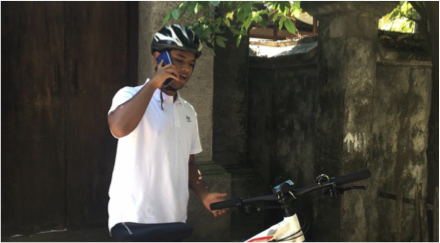Secondary Newsletter No. 27
Friday, March 14, 2019
| BIS Events Calendar | Counselor’s Corner |
Dear Parents,
Term 3 Reports and 3-Way Conferences
Progress reports will be issued for G6-11 on Wednesday, March 27. By the end of Monday, you should receive an invitation to sign up for 3-Way Conferences on Thursday, March 28. Based on teacher and parent feedback about congestion and high noise levels, half the teachers will be in the Library and half in the MPR. Sessions will remain at seven minutes but we have increased the transition time to two minutes between each conference. If you want a longer appointment with a teacher please email them to arrange another time. When making your bookings we suggest booking your MPR appointments together followed by your library appointments.
Ross Ferris (Secondary Principal)
MYP Corner
My Freedom Day (see newsletter edition # 26 for the full story)
#MyFreedomDay 2019: Students teach the world about modern slavery
Here are some links to some really creative and powerful contributions from our Grade 9 students which were published on the CNN website yesterday.
- ‘Poetry. Dance. Drama. Bali gets creative’ (Dinda, Laura, Jared, Maya)
- ‘Some people are not as lucky as you and me’ (Lawrence, Kasper, Pablo, Anton)
Personal Project Exhibition 
Please come and support our Grade 10 students on Thursday 21 March from 9am to 2:45pm in the MPR. Students will be showcasing their year-long projects and taking you through their process. This is the Grade 10 finale and they are very excited to be able to share with the BIS community their work. Grade 9 students will be beginning this project in the first week back in Term 4.
Michele McLay (MYP Coordinator)
ATL – Self-management/Organisation – Parent tips
Binders, Backpacks, and Planners: Three Ways to Stay Organized at School
One of the most challenging tasks for a middle school student is staying organized. It seems simple enough for adults but some students find it challenging and need to be taught basic organization skills. Three ways to help your child stay organized and productive in school include:
- School Binders – There is a multitude of binders on the market today to help students organize their materials. One is a multi-ring binder with colored tabs for each class. Set aside a couple of minutes each night to check your child’s binder to ensure handouts, class notes, and other materials are neatly stored in the appropriate sections. Allow input from your child on ways they would like to organize their materials and help guide them through the process of setting up and maintaining their binder. In the end, having a tidy binder will eliminate clutter and make studying easier and more efficient.
- Backpacks – How many times have you checked your child’s backpack and found old assessments, crumpled up handouts and unrecognizable papers? Most of us assume that our children practice good self-management skills and keep their materials neatly organized but in reality, this is not always the case. You can help your child “de-clutter” their backpack by checking it regularly and removing unwanted materials. Another idea is to encourage your child to utilize their locker for storing materials and reminding them that their backpack is used for essential items like their daily planner, snack box, class binder, and laptop computer. This will lighten the load in their backpack and encourage them to manage their school materials more efficiently.
- Daily Planners – This is an effective way to record assigned tasks and assessments. Check your child’s planner each day and have them explain the assigned task and learning objective. If you as the parent don’t understand what is written down in your child’s planner more than likely your child won’t understand it either. Checking the due dates of an assignment and encouraging your child to develop a system for checking off completed tasks will also help. As your child becomes proficient at using their planner their productivity will increase and the number of incomplete assignments will decrease.
Hopefully, these simple suggestions will help your child become self-sufficient in managing their daily life at school and develop valuable organizational skills for the future. For additional information on ways to help your child stay organized in school refer to Tools and Solutions to Help Teens With Organization Issues at https://www.understood.org/en.
Shawn Knudson (Learning Support Teacher)
DP Corner
Core Work[out]
I am extremely pleased to announce that the Grade 12s completed all of the core components of the IB Diploma Programme this week. These core components include CAS, Extended Essay [EE] and Theory of Knowledge [TOK]. If students fail to meet any of the requirements of the core components they fail the DP regardless of what grades they receive in their exams. Our students have undertaken some sterling work in both TOK and the Extended Essay which could see them awarded up to 3 additional points as shown in the matrix below. Well done to our Grade 12s on passing this important milestone! The Diploma Points Matrix for EE and TOK is to the right.
Matt Wood (DP Coordinator)
CAS Corner
From the Green Team
Recognise and consider the ethics of choices and actions – In today’s green team meeting we discussed our ideas and thoughts on how we could make an effective and impactful video to promote BIS students to wear helmets when cycling to and from the BIS campus. As a team we had decided that we had wanted to present this video during the next assembly, so we needed to plan what we wanted to include to make sure that students were able to receive a meaningful message. We decided on incorporating a small skit to make the video more impactful and was a good way to get an audience to become interested, we also decided that we needed to involve some statistics so that the video wasn’t completely theatrical.
– In today’s green team meeting we discussed our ideas and thoughts on how we could make an effective and impactful video to promote BIS students to wear helmets when cycling to and from the BIS campus. As a team we had decided that we had wanted to present this video during the next assembly, so we needed to plan what we wanted to include to make sure that students were able to receive a meaningful message. We decided on incorporating a small skit to make the video more impactful and was a good way to get an audience to become interested, we also decided that we needed to involve some statistics so that the video wasn’t completely theatrical.
Demonstrate engagement with issues of global significance – We wanted to create this video in the first place to really emphasize the importance of wearing a helmet when cycling to school, keeping in mind that there are roads with heavy traffic when entering the school. As we are a green team, we had to make this a priority of ours to ensure that BIS students are safe when cycling. By encouraging students to wear helmets when cycling we are making sure that in the long run students are aware of the importance of wearing a helmet and the danger they put themselves in when they don’t.
– We wanted to create this video in the first place to really emphasize the importance of wearing a helmet when cycling to school, keeping in mind that there are roads with heavy traffic when entering the school. As we are a green team, we had to make this a priority of ours to ensure that BIS students are safe when cycling. By encouraging students to wear helmets when cycling we are making sure that in the long run students are aware of the importance of wearing a helmet and the danger they put themselves in when they don’t.
Demonstrate that challenges have been undertaken developing new skills in the process – A difficulty that myself and the green team faced when brainstorming ideas was making sure that though we had a small skit, that could be interpreted as comical by some students, that we made sure we are able to make this video in a way that students do take it seriously. After coming up with a few ideas we had decided upon balancing the statistics and reality of it with the sort of playful skit that we had come up with.
Annabel Nicolson (Grade 11)
